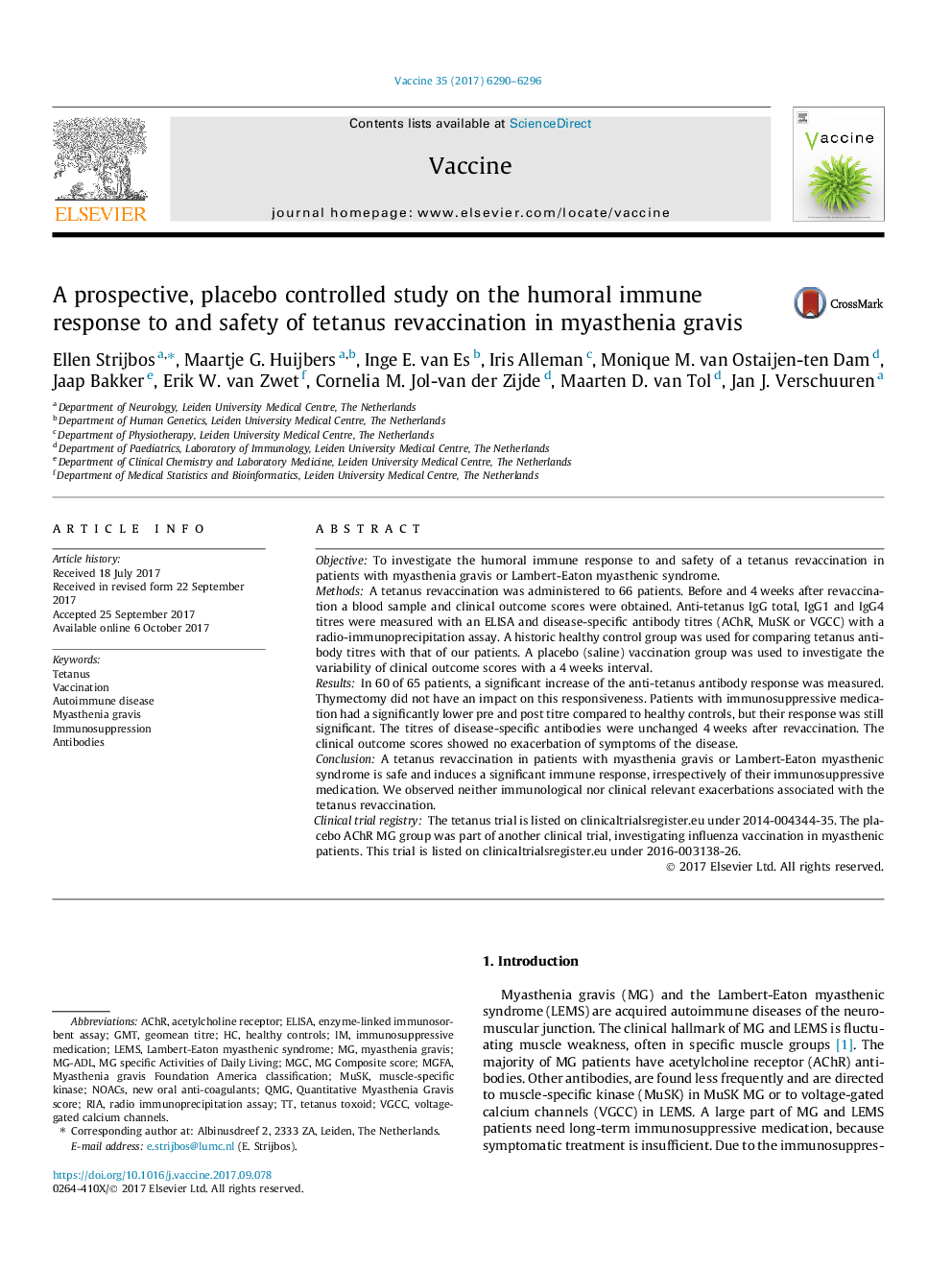| Article ID | Journal | Published Year | Pages | File Type |
|---|---|---|---|---|
| 5536296 | Vaccine | 2017 | 7 Pages |
ObjectiveTo investigate the humoral immune response to and safety of a tetanus revaccination in patients with myasthenia gravis or Lambert-Eaton myasthenic syndrome.MethodsA tetanus revaccination was administered to 66 patients. Before and 4Â weeks after revaccination a blood sample and clinical outcome scores were obtained. Anti-tetanus IgG total, IgG1 and IgG4 titres were measured with an ELISA and disease-specific antibody titres (AChR, MuSK or VGCC) with a radio-immunoprecipitation assay. A historic healthy control group was used for comparing tetanus antibody titres with that of our patients. A placebo (saline) vaccination group was used to investigate the variability of clinical outcome scores with a 4Â weeks interval.ResultsIn 60 of 65 patients, a significant increase of the anti-tetanus antibody response was measured. Thymectomy did not have an impact on this responsiveness. Patients with immunosuppressive medication had a significantly lower pre and post titre compared to healthy controls, but their response was still significant. The titres of disease-specific antibodies were unchanged 4Â weeks after revaccination. The clinical outcome scores showed no exacerbation of symptoms of the disease.ConclusionA tetanus revaccination in patients with myasthenia gravis or Lambert-Eaton myasthenic syndrome is safe and induces a significant immune response, irrespectively of their immunosuppressive medication. We observed neither immunological nor clinical relevant exacerbations associated with the tetanus revaccination.Clinical trial registryThe tetanus trial is listed on clinicaltrialsregister.eu under 2014-004344-35. The placebo AChR MG group was part of another clinical trial, investigating influenza vaccination in myasthenic patients. This trial is listed on clinicaltrialsregister.eu under 2016-003138-26.
